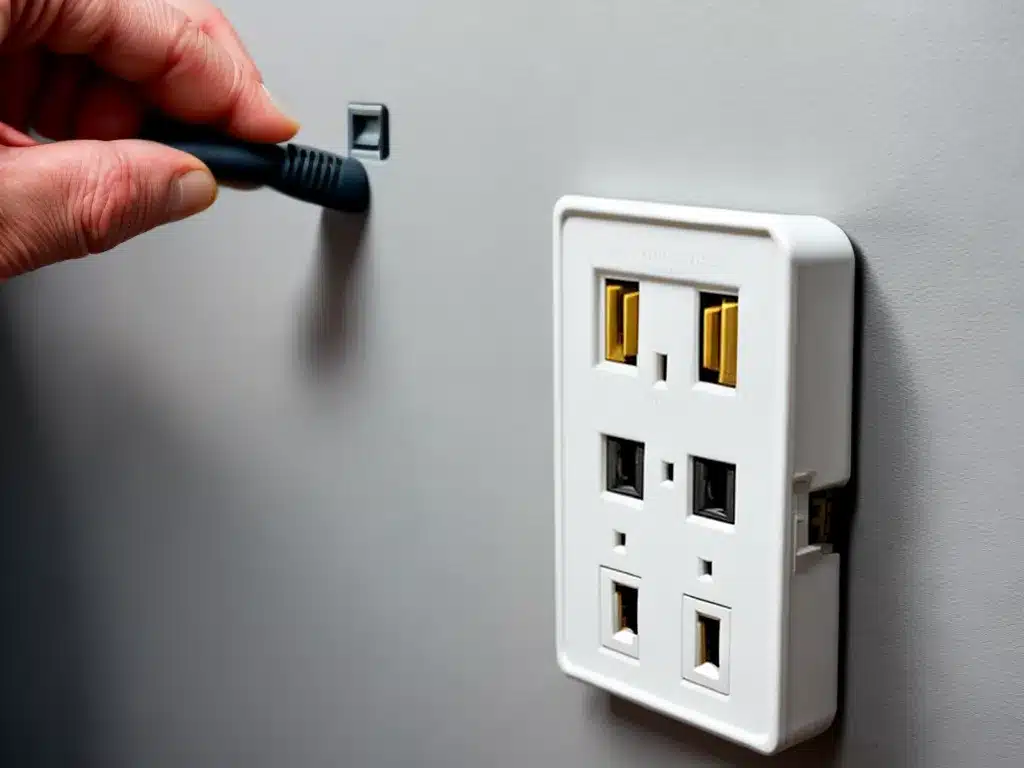 Using Universal Power Sockets“” />
Using Universal Power Sockets“” />
The Overlooked Dangers of Using Universal Power Sockets
Introduction
The rise in popularity of universal power sockets and adapters has made travel and using devices from different countries much more convenient. However, there are some important safety issues to consider when using these universal power sockets that are often overlooked. In this article, I will discuss the less obvious dangers and risks associated with using universal power sockets and provide tips on how to use them safely.
Risk of Electric Shock
One of the biggest risks of using universal power sockets is the potential for electric shock. I used to assume that as long as the plug physically fit into the socket, it would be safe to use. However, there are a few scenarios where this is not the case:
-
Using an adapter with incompatible electrical standards – Some adapters may connect an appliance to an electrical system that has different voltage, frequency or plug shape. This can result in a fire or electric shock hazard.
-
Using a low quality or faulty adapter – Cheap adapters may not adequately convert the voltage or may have exposed wiring. Using these could lead to electric shock.
-
Plugging an appliance that draws too much power into the adapter – If you plug a high wattage appliance into an under-rated adapter, it can overheat and malfunction.
-
Damaged sockets or loose connections – Faulty wiring in old sockets or loose plugs can also lead to shocks or fires.
I learned the hard way that universal sockets do not guarantee safety when I used a European adapter in an old Indonesian hotel room and received a nasty shock!
Fire Risks
In addition to electric shocks, using the wrong adapter or appliance can also overheat and result in fires. Some scenarios where this could occur include:
-
Adapter rated for lower wattage than appliance – If the appliance pulls more power than the adapter can handle, it will overheat.
-
Plugging an appliance into incorrect voltage – North American appliances on 230V European sockets, or vice versa.
-
Using damaged or loose connections – Faulty wiring and loose plugs/sockets can overheat.
-
Overloading extension cords and power strips – Too many high wattage appliances can cause overheating.
I witnessed a small fire start from overheating when too many devices were plugged into a single power strip. This could have been easily avoided by using properly rated adapters and being aware of the total wattage plugged in.
Damaging Expensive Electronics
Using the wrong power adapter can instantly fry laptops, phones, and other expensive electronics. For example:
-
Supplying excess voltage – Extra voltage can damage delicate electronics not designed for it.
-
Using AC adapters on DC devices – DC gadgets like laptops use transformers in AC adapters to convert the power.
-
Incorrect polarity – Reversing live and neutral connections can damage devices.
-
Incorrect amperage – Underpowered adapters can damage electronics by making them draw too much current.
I learned this lesson after connecting my phone to a 12V car charger – it overheated within seconds, completely frying the circuits! Getting the right voltage and polarity matters.
Tips for Safe Usage
Here are some tips to use universal power sockets safely:
-
Check adapter is rated for the destination voltage & frequency – Use adapters marked 100-250V, 50-60Hz.
-
Never force an incompatible plug into a socket – Use properly shaped adapters.
-
Ensure your device can handle the input voltage – Some devices like hair dryers may have a voltage switch.
-
Avoid cheap, off-brand adapters – Pay for quality, UL/CE approved ones for safety.
-
Only plug in compatible devices – Don’t use AC adapters for DC devices.
-
Don’t overload adapters or extension cords – Check wattage ratings are not exceeded.
-
Inspect the socket for damage before use – Avoid using loose, damaged or burnt sockets.
-
Use a surge protector – They can prevent voltage spikes from damaging electronics.
By following these simple precautions, I can avoid electrical hazards when using universal power sockets in future. Proper adapters and vigilance go a long way in staying safe.
Conclusion
Universal power sockets provide great convenience for travellers, but also come with overlooked risks like electric shocks, fires and damaged electronics if used improperly. I learned from experience to take precautions like using high-quality adapters rated for the correct voltage and frequency, avoiding overloads, and inspecting sockets for damage. With proper care, universal adapters can be used safely almost anywhere in the world. But it’s important not to neglect the dangers – a moment of inattention could ruin your gadgets or worse. Stay safe by following basic electrical safety measures.
